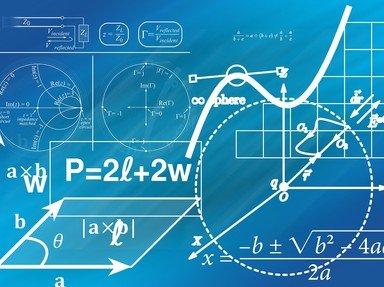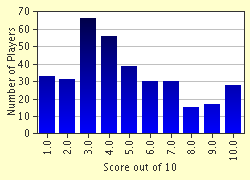Quiz Answer Key and Fun Facts
1. What is the title of G.H. Hardy's most famous work on his experiences as a mathematician?
2. Who first proposed the Prime Number Theorem?
3. Who is credited with the sequence:
1,1,2,3,5,8,13,...
4. Who proposed that e(i*(pi))+1=0?
5. Who addressed at the start of the last century that there were 23 problems to be solved of great importance to mathematics and then listed those problems?
6. Who is credited with "coming up" with the formula for partition numbers?
7. Which university did Riemann study in?
8. What is arguably the most important unsolved mathematical problem today?
9. Who solved the Fermat's Last Theorem?
10. Who said that every even number greater than 4 can be expressed as the sum of two distinct primes?
Source: Author
lordaditya
This quiz was reviewed by FunTrivia editor
crisw before going online.
Any errors found in FunTrivia content are routinely corrected through our feedback system.


